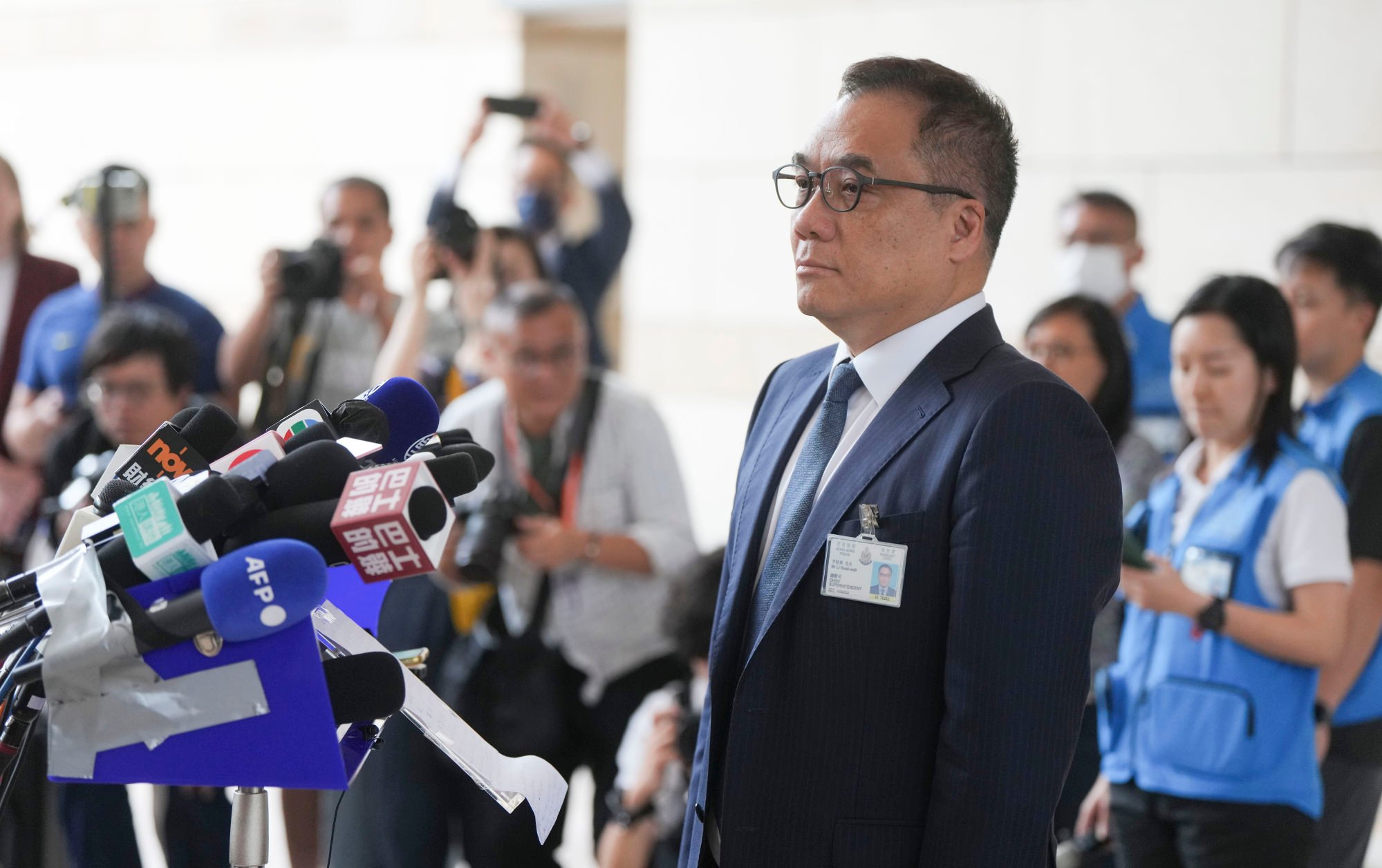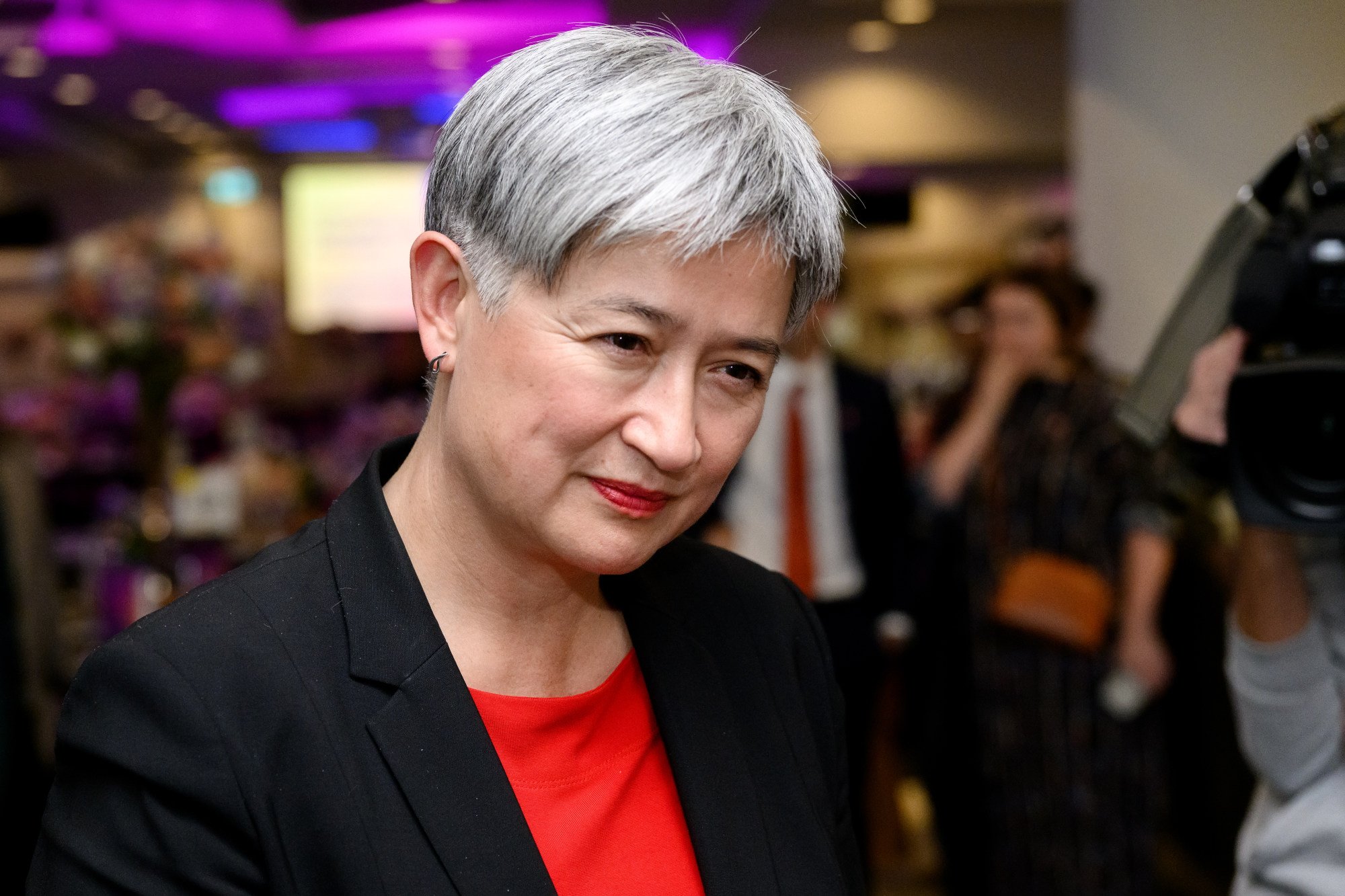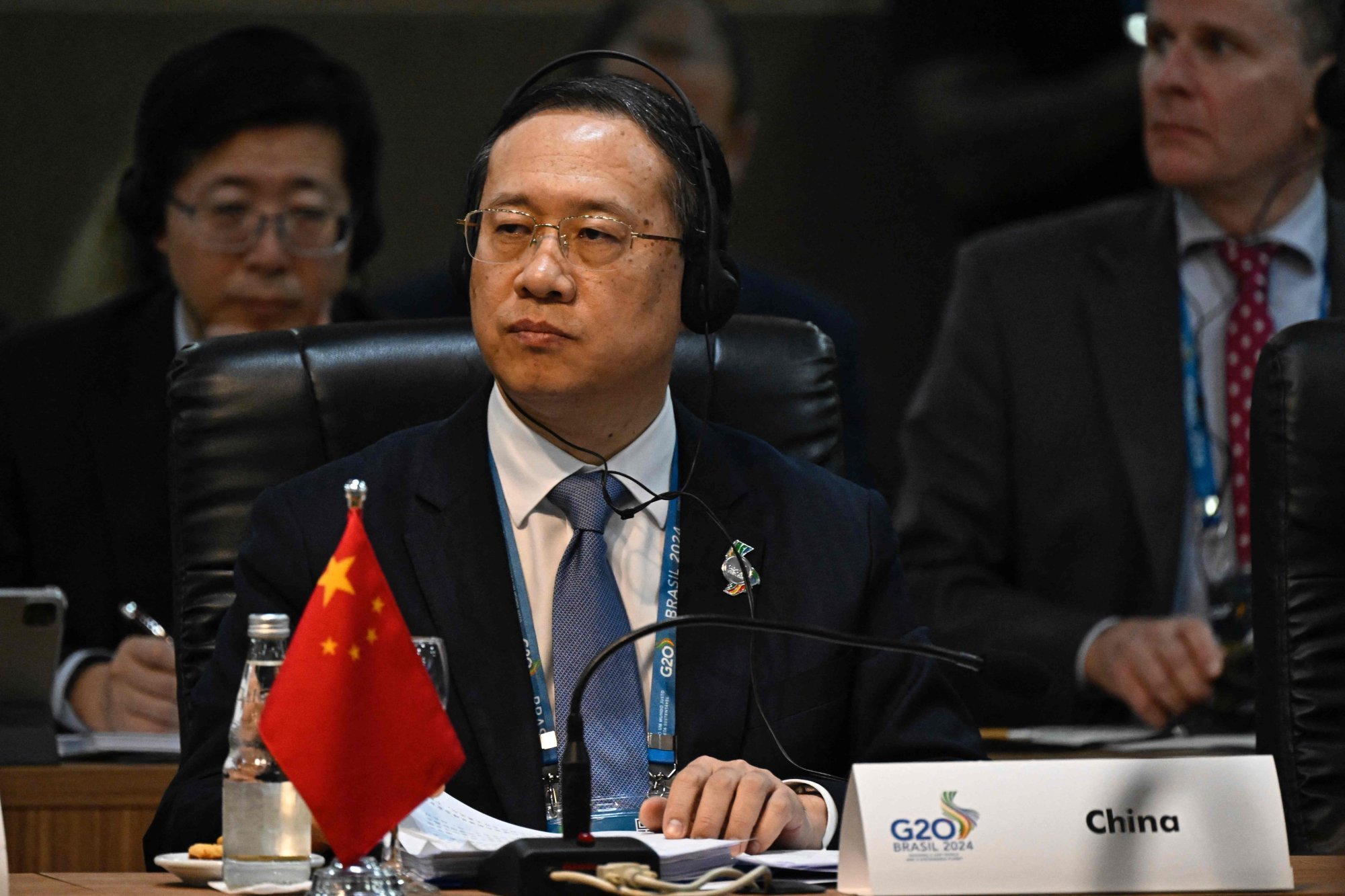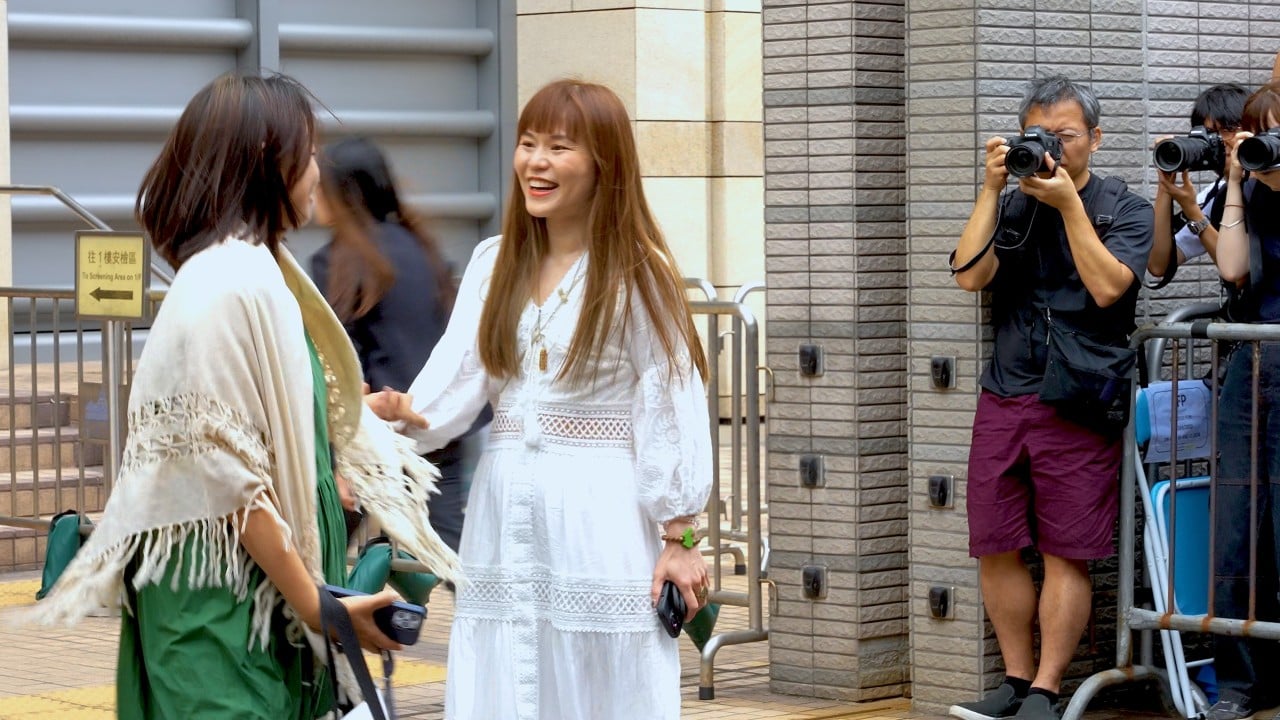The Hong Kong government responded that “the so-called ‘sanctions’ mentioned by some foreign politicians smack of despicable political manipulation to intimidate judges, judicial officers and prosecutors from the Department of Justice”, adding that it was not “intimidated by such despicable behaviour”.
The 16 are among 47 people – the “Hong Kong 47” – involved in the biggest prosecution under the national security law Beijing imposed in June 2020 to quell the city’s year-long social unrest.
In its statement announcing the new visa restrictions on Friday, the US State Department urged Chinese and Hong Kong authorities to “cease the use of vague national security laws to curb peaceful dissent”.
It did not name the officials subject to the sanctions.
“The defendants were subjected to a politically motivated prosecution and jailed simply for peacefully participating in political activities protected under the Basic Law of Hong Kong,” it said, adding that “imposing harsh sentences … would further erode confidence in Hong Kong’s judicial system”.
The Hong Kong government rejected that description, saying that “such criminal acts endangering national security had nothing to do with the so-called fight for democracy and human rights”.
The court, it said, “clearly confirmed the occurrence of the offence of conspiracy to commit subversion, which aimed at undermining, destroying or overthrowing the existing political system and structure” of the Hong Kong Special Administrative Region.
The government said it would continue to “effectively prevent, suppress and impose punishment for acts and activities endangering national security in accordance with the law”.

The State Department said the law had “broad and vaguely defined provisions” regarding sedition, state secrets and interactions with foreign entities.
The Hong Kong legislation identifies 39 offences, divided into five categories: treason; insurrection, incitement to mutiny and disaffection, and acts with seditious intention; sabotage; external interference; and theft of state secrets and espionage.
The verdict in Hong Kong has also drawn condemnation from other Western nations, remarks the Hong Kong government described as “untruthful, slandering and smearing”.
In a statement, the European Union said that the convictions mark “a further deterioration of fundamental freedoms and democratic participation in Hong Kong”.
The EU called the prosecution politically motivated and said that the defendants were “being penalised for peaceful political activity that should be legitimate in any political system that respects basic democratic principles”.
Australian foreign minister Penny Wong said that her government was “deeply concerned”, noting that one of those convicted, Gordon Ng, was an Australian national.
Wong added that her government would continue to raise “human rights concerns directly with the Hong Kong and Chinese governments”.

Anne-Marie Trevelyan, Britain’s minister for the Indo-Pacific, said that the case clearly showed how Hong Kong authorities had used the national security law “to stifle opposition and criminalise political dissent.”
She said the 47 people prosecuted “are guilty of nothing more than seeking to exercise their right to freedom of speech, of assembly and of political participation, as guaranteed under the International Covenant on Civil and Political Rights and promised in the Sino-British Joint Declaration”.
The Hong Kong government responded to Trevelyan by saying that the treaty signed in 1984 “did not authorise the UK to interfere in Hong Kong’s affairs after its return to the motherland”.
“The external forces disregarded the fact, made skewed remarks about the verdict delivered by the court of the HKSAR by replacing the rule of law with political manipulation and confounding right and wrong, and blatantly interfered in Hong Kong’s affairs, which are entirely China’s internal affairs.”
It said it was “extremely inappropriate” for the US and other Western countries “to make unwarranted comments on criminal trials which are ongoing in the HKSAR courts”, calling it “a complete disregard for the spirit of the rule of law”.
Separately, on Thursday, Campbell voiced concerns about human rights abuses in Hong Kong and mainland China during his session with Ma in Washington, according to the State Department.

Apart from human rights issues in China, the wide-ranging meeting between the diplomats largely focused on global affairs and the US-China relationship.
According to the readouts from both countries, topics included the Taiwan Strait, South China Sea, Korean peninsula, the Middle East, Ukraine and Russia, tariffs and trade, military-to-military communication, artificial intelligence and more.


